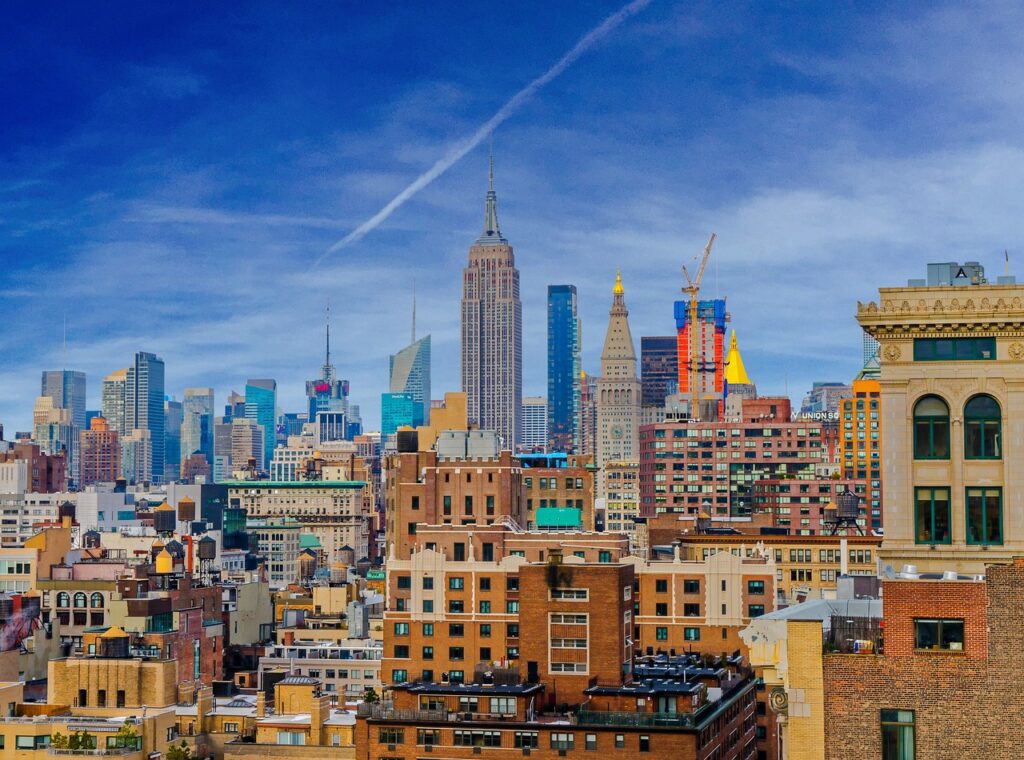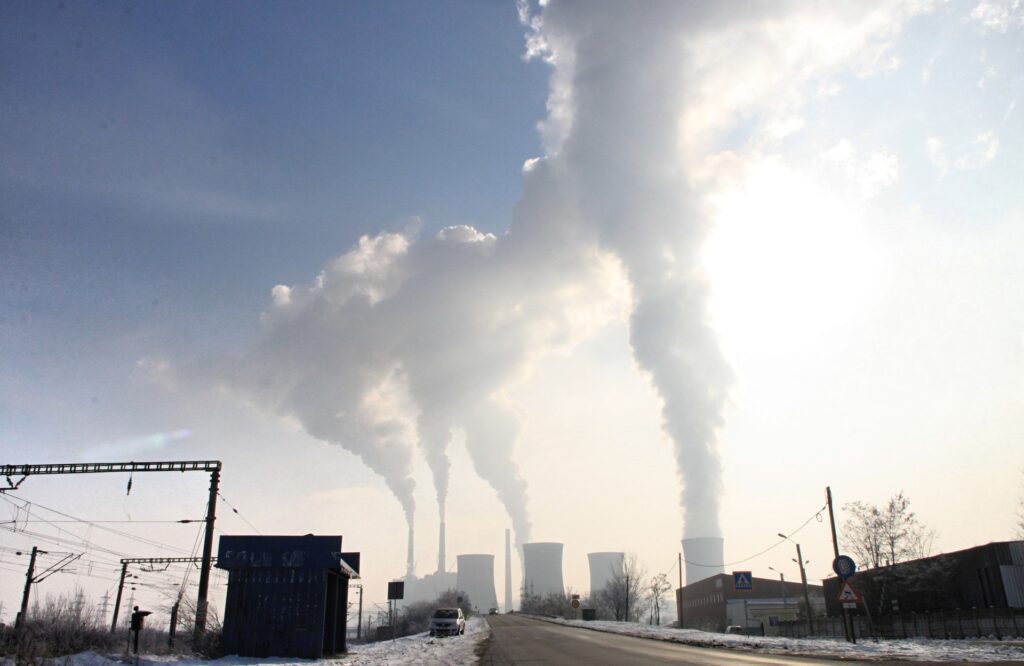By: EJ News Today | January 3, 2023
New York State Governor Kathy Hochul gave environmental justice advocates another reason to celebrate on New Year’s Eve by signing the “Cumulative Impacts” bill (S.8830/A.2103D) into law. New York now becomes the second state in the nation with such a “cumulative impacts” law, following New Jersey’s groundbreaking legislation signed in 2020.
This new law will ensure that the cumulative impacts of pollution are taken into consideration in environmental permitting processes when potentially facilities seek permits in disadvantaged communities. Proponents have recognized that existing laws and environmental regulations do not require that cumulative impacts of pollution be considered into when State agencies consider issuing environmental permits for regulated facilities, instead treating them as if they were the only source of pollution that local residents will have to endure. Advocates believe that mandating the consideration of cumulative impacts will be important in addressing the impacts of environmental injustice that has plagued the health and well-being of these communities for many generations.
As for legislative intent, the Assembly version of the cumulative impacts bill notes:
“each community in the state should equitably share the responsibilities, burdens, and benefits of managing and solving the state’s environmental problems and the facilities necessary to accomplish such ends. The legislature further declares that there has been an inequitable pattern in the siting of environmental facilities in minority and economically distressed communities, which have borne a disproportionate and inequitable share of such facilities. Consistent with its commitment to providing equal justice for its citizens, the state has a responsibility to establish requirements for the consideration of such decisions by state and local governments in order to insure equality of treatment for all communities.”
One of the EJ organizations leading the way for this new law, WE ACT for Environmental Justice – a Harlem-based EJ organization focused on community activism, education and environmental health – declared this a significant moment in the environmental justice movement. “We saw disadvantaged communities across the state suffer higher rates of illness and mortality during the COVID-19 pandemic, with studies linking the higher incidence of chronic diseases to the adverse health impacts of air pollution and other forms of pollution, which studies also link to the cumulative impacts of exposure in these communities,” said Sonal Jessel, Director of Policy at WE ACT for Environmental Justice. “We need to stop treating these communities as dumping grounds for pollution and other hazards, and this law will protect these communities from additional burdens and prevent them from continuing to be environmental sacrifice zones.”
In supporting the new law, the Sierra Club’s Atlantic Chapter highlighted that for more than four decades, the New York State Environmental Quality Review Act (SEQRA) has not required the direct protection disadvantaged communities and left coverage gaps for the most vulnerable – disadvantaged communities, typically consisting of diverse and low-income populations. “While SEQRA has undoubtedly improved New York’s environment and saved us from some especially harmful projects and policies, the lopsided focus on protecting what is rare and pristine has distracted efforts to restore equity and justice to where pollution and discrimination have been allowed to comingle for decades,” said Roger Downs, Conservation Director, Sierra Club Atlantic Chapter. “We commend Senate Leader Stewart Cousins and Assemblymember Pretlow for their vision and leadership and applaud Governor Hochul for addressing this long-standing inequity by signing the ‘cumulative impacts’ legislation into law.”
Although formal statements concerning the law have not been issued by industry groups, it appears some in the business community are supportive of the cumulative impacts law. “[We applaud] Governor Hochul for taking this important step to safeguard our health and economy,” said Bob Rossi, Executive Director of the New York Sustainable Business Council. “The disproportionate impacts of environmental hazards further wealth inequality and create drag on our social services and overall economy. We are thrilled to see New York’s leadership on addressing cumulative impacts.”
It will be interesting to see how the New York State Department of Environmental Conservation (NYSDEC) and other State agencies proceed with administrating this new law. EJ advocates, attorneys, consultants, and other interested persons should expect new regulations and agency policy guidance documents interpreting the law to be issued in 2023 and 2024.
The cumulative impacts law was sponsored by Assembly Member J. Gary Pretlow (89th Assembly District) and Senator Andrea Stewart-Cousins (35th Senate District).
What Are Cumulative Impacts?
Low-income communities and communities of color have historically been burdened by a disproportionate number of pollution-generating facilities such as auto repair facilities, power plants, factories, bus depots, sewage treatment plants, landfills, waste transfer stations, and trucking centers. These facilities typically generate hazardous air pollutants impacting community members that live, work, go to school or worship within close proximity. Individually, each of the facilities emit noxious or toxic emissions that may not significantly affect the air quality nearby. However, the collective impacts of the facilities can be detrimental to local community members. The cumulative impacts of multiple sources of pollution exponentially harm local residents, causing health impacts such as asthma, lung and heart disease, increased birth defects, and learning impairments.
Existing laws and regulations generally not take the cumulative impacts of pollution into account when State agencies review applications for environmental permits, instead treating facilities as if they were the only source of pollution that residents will have to endure. Cumulative impact laws, like those in New Jersey and New York, should play an important role in improving the health of EJ communities.



